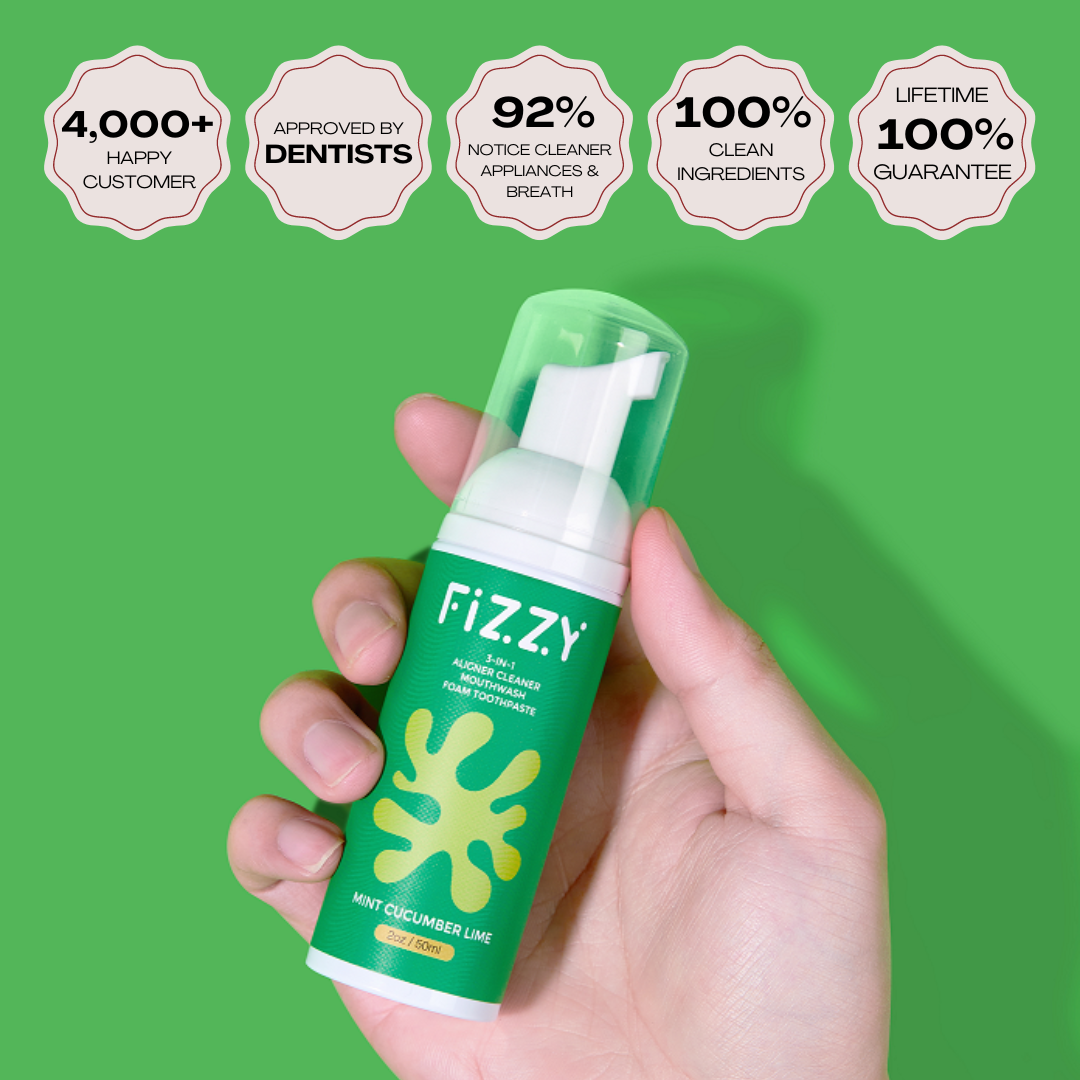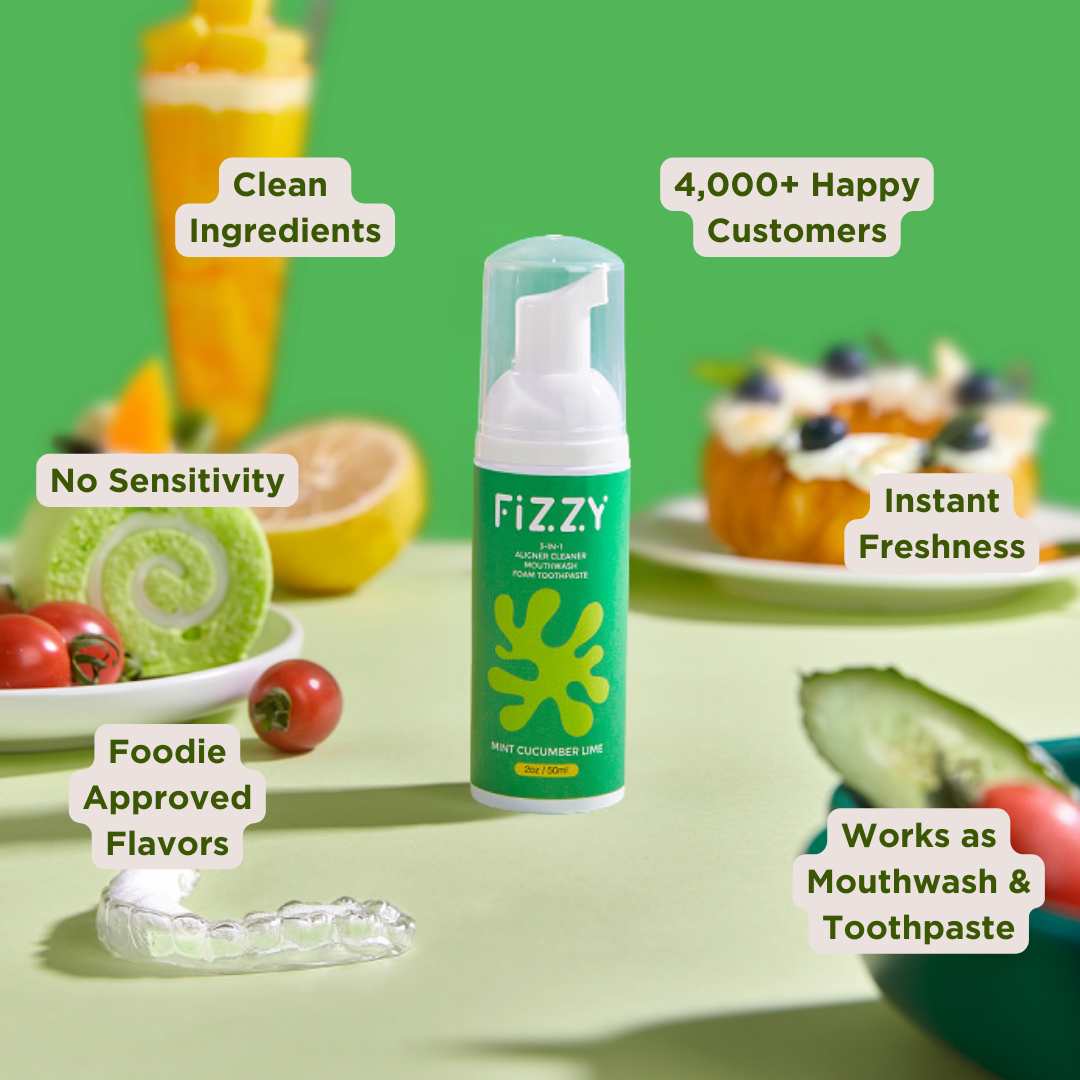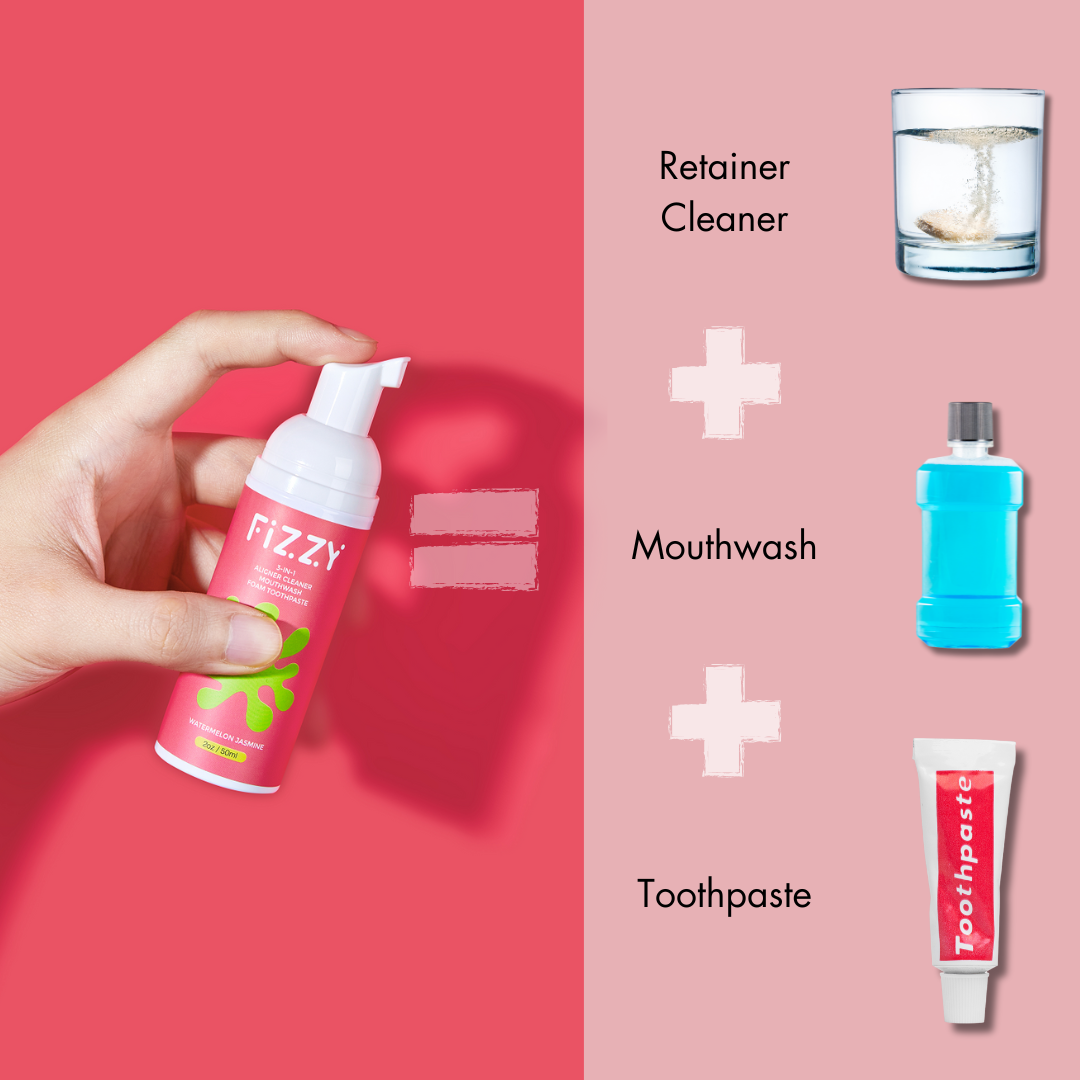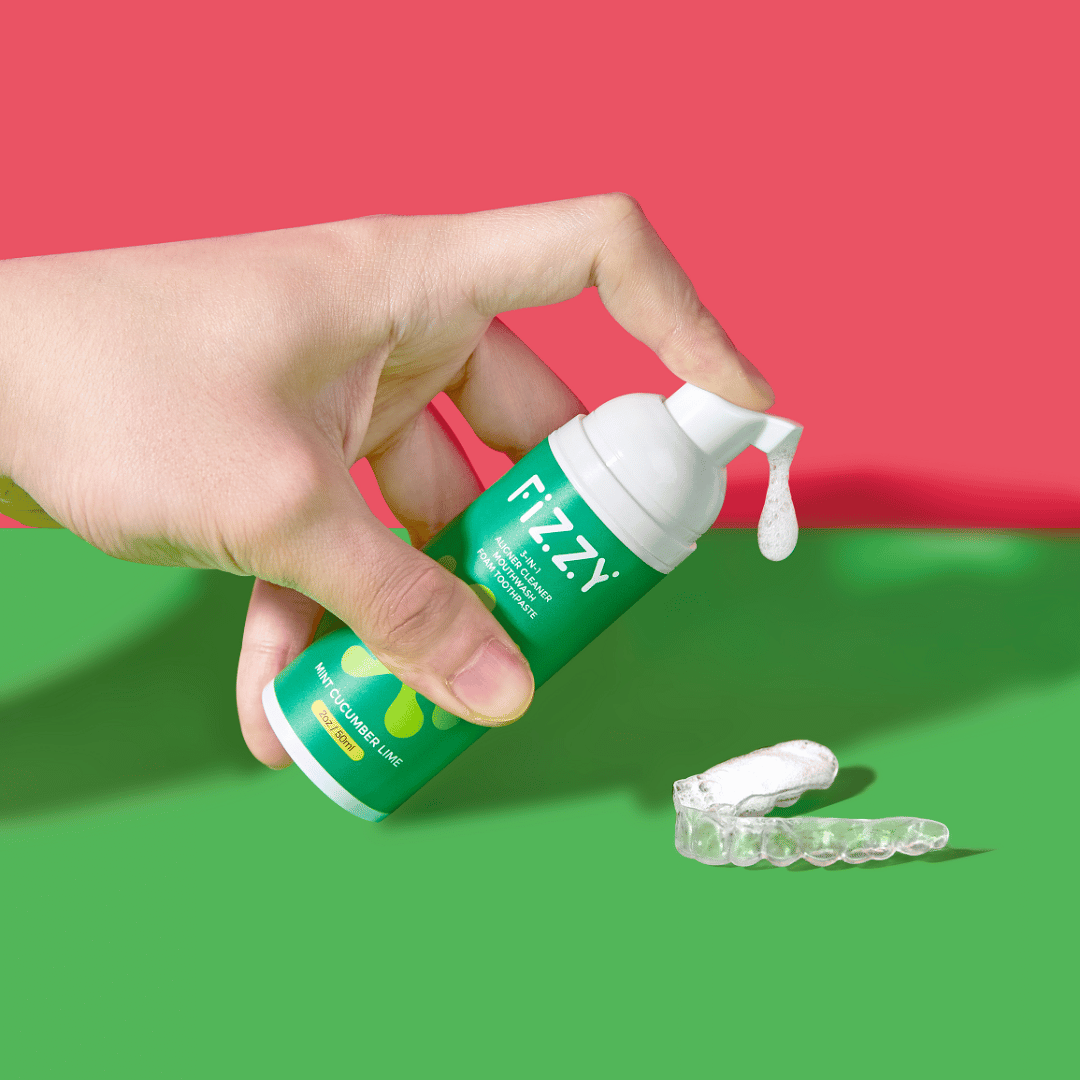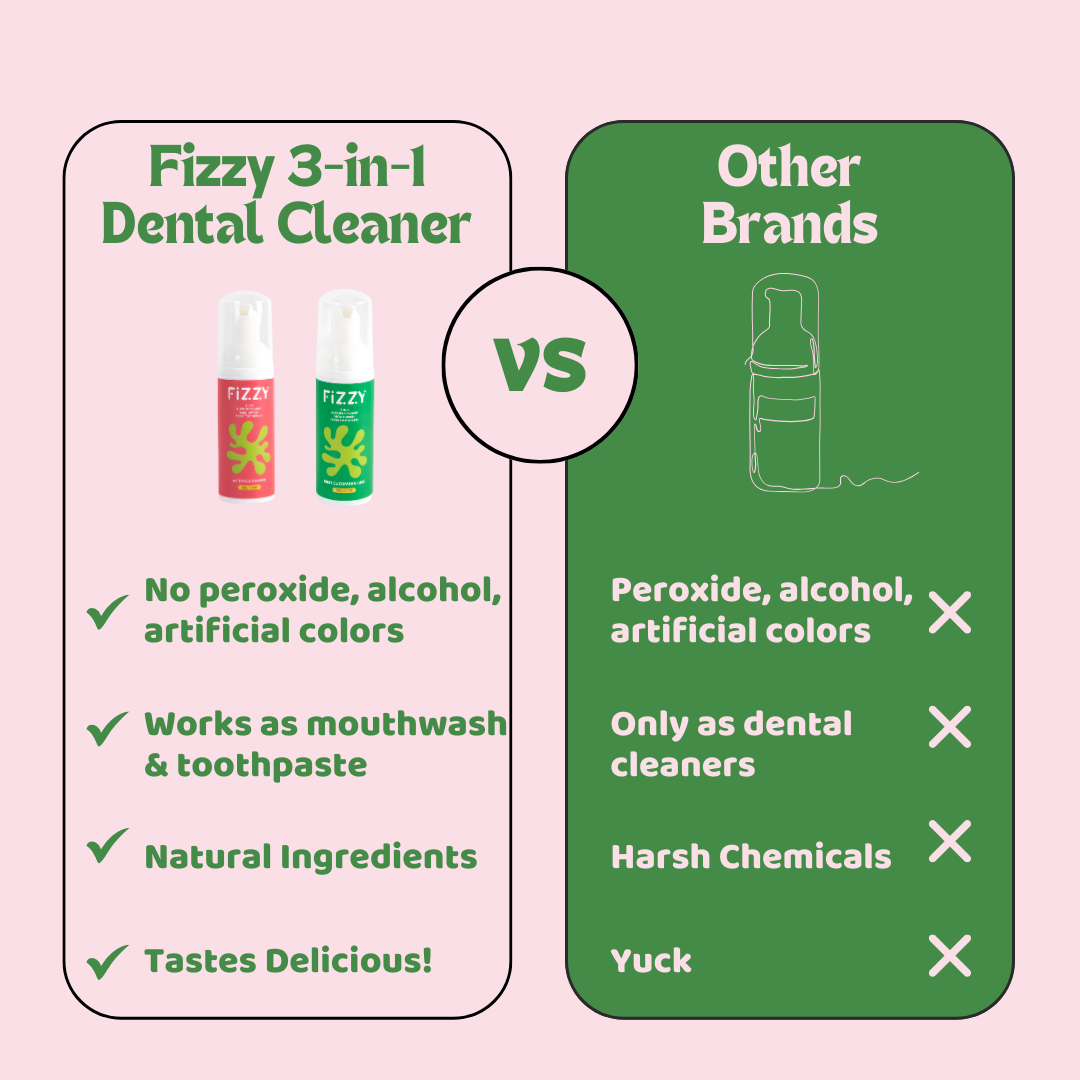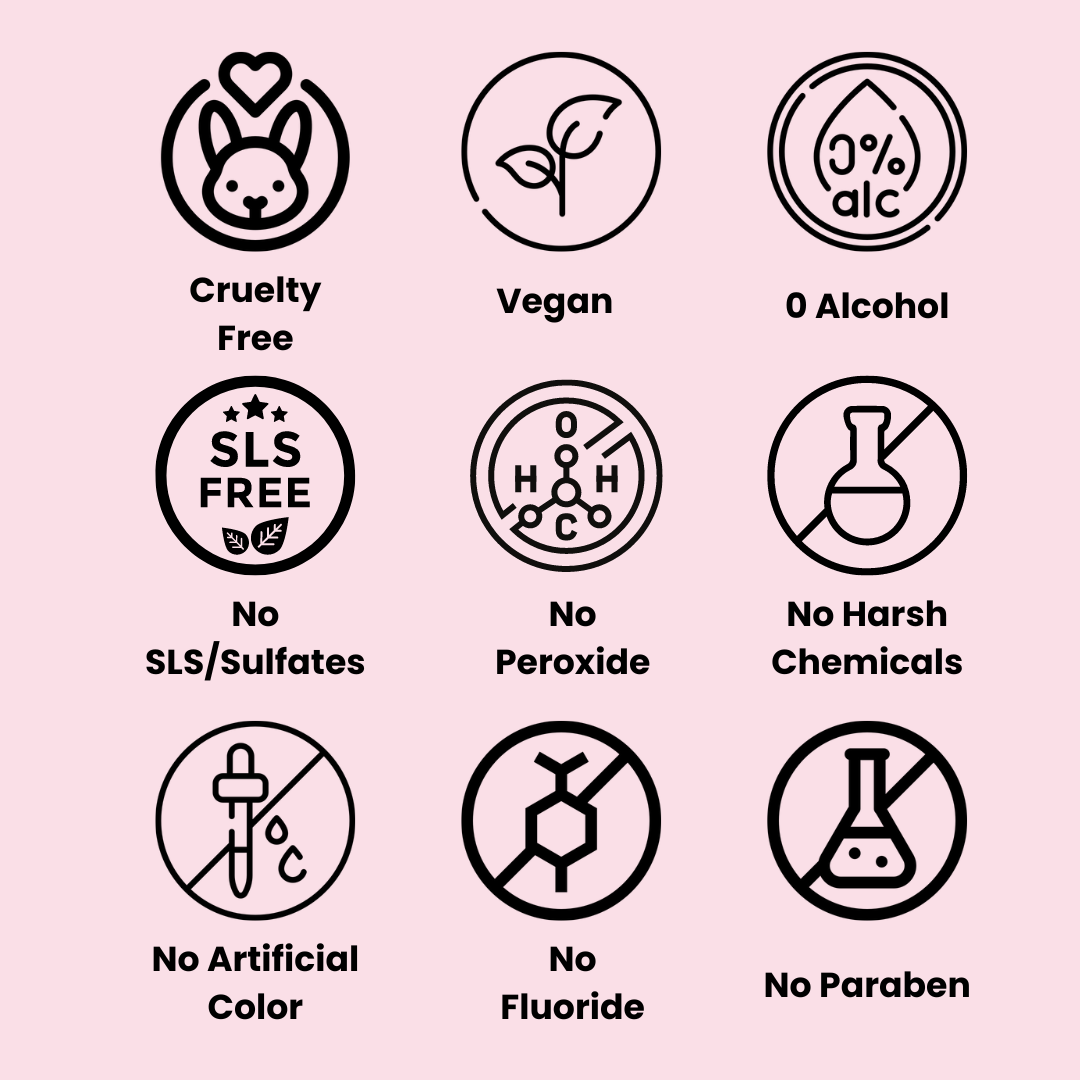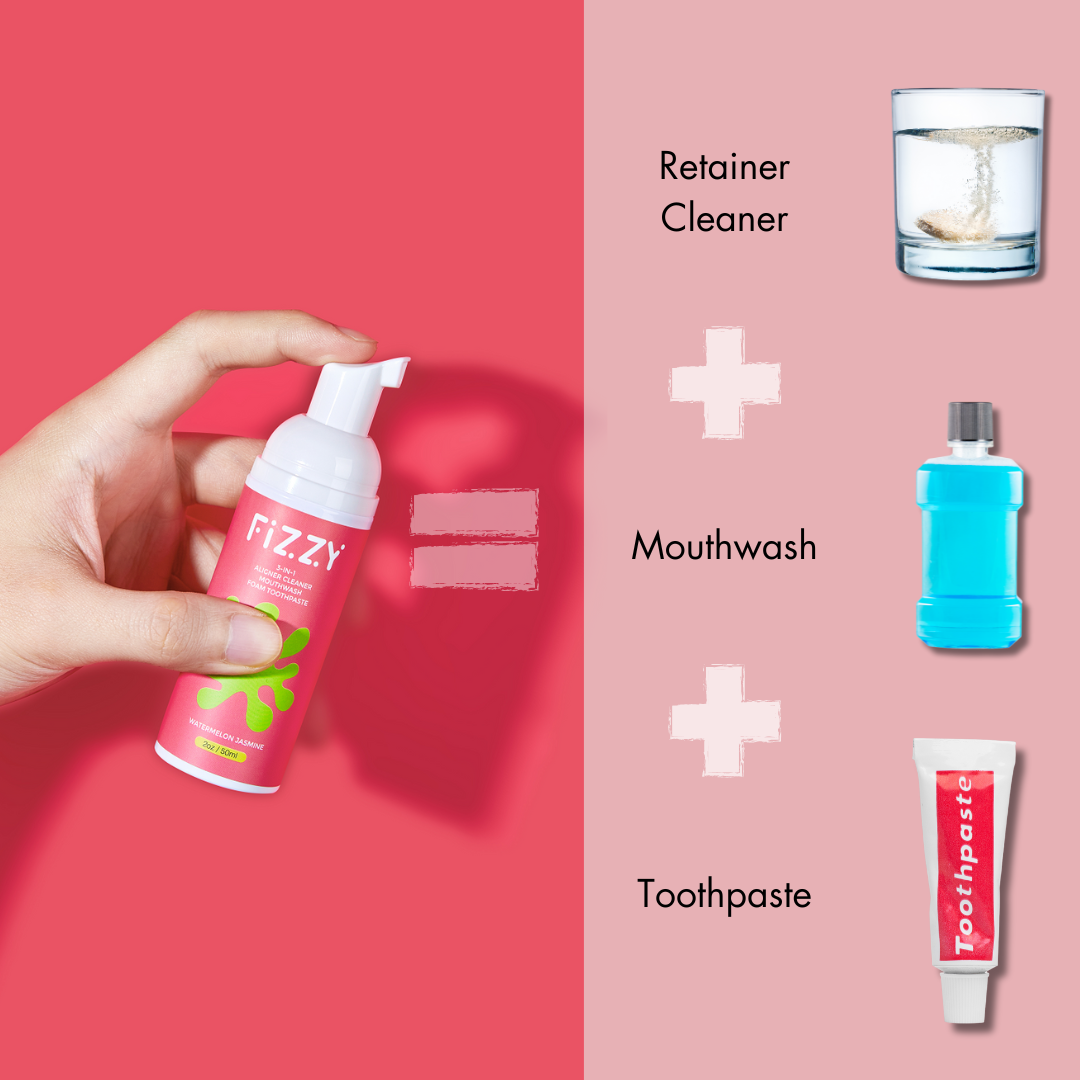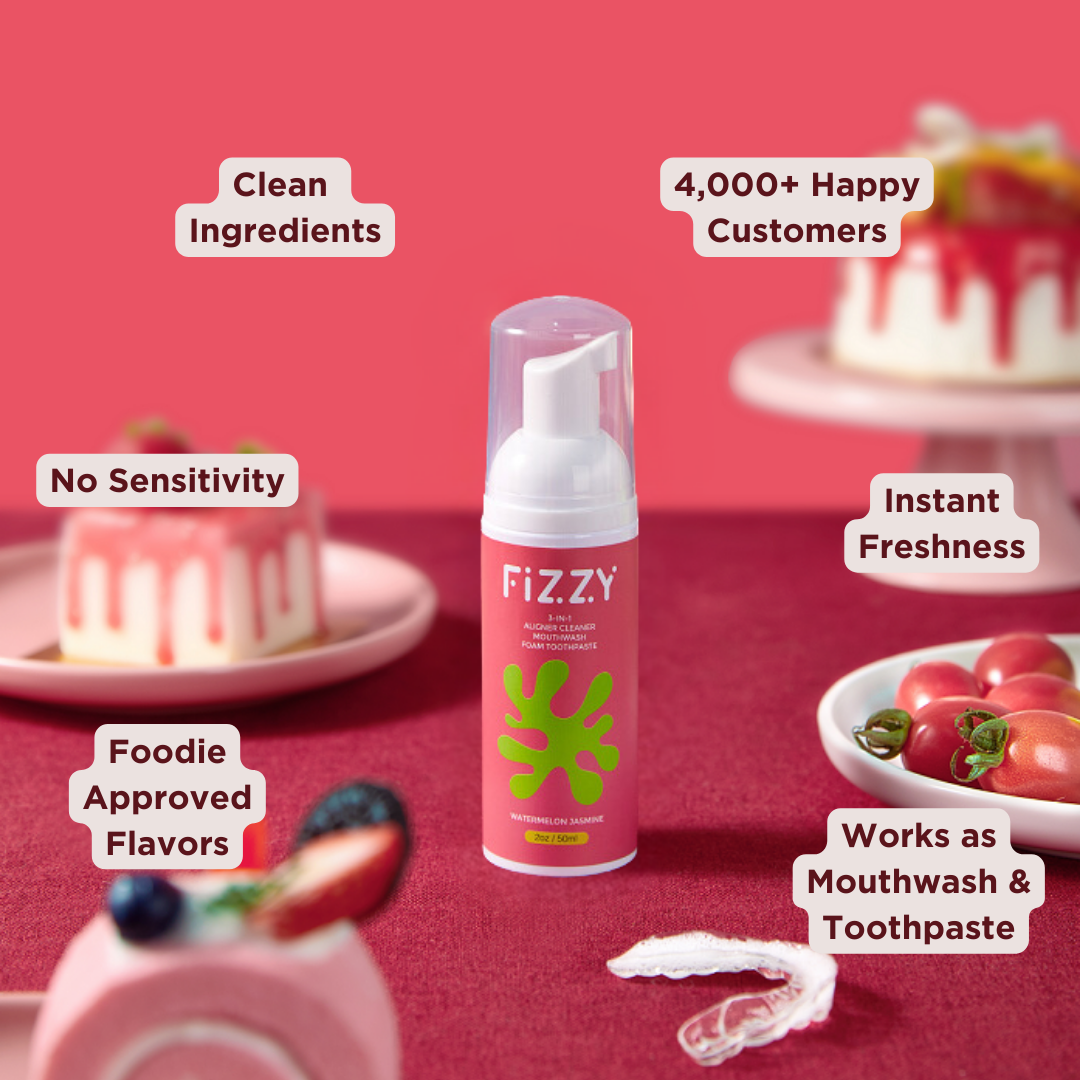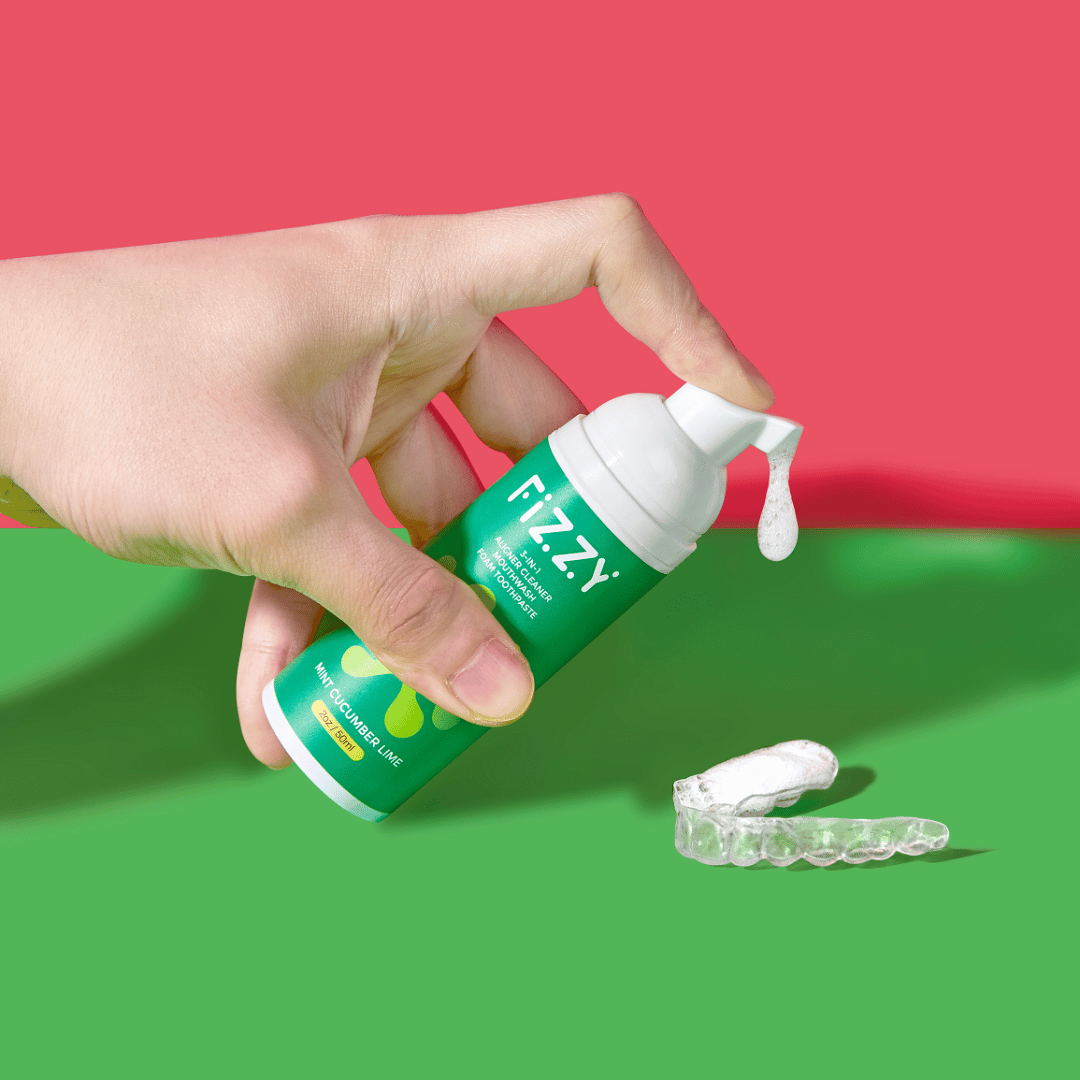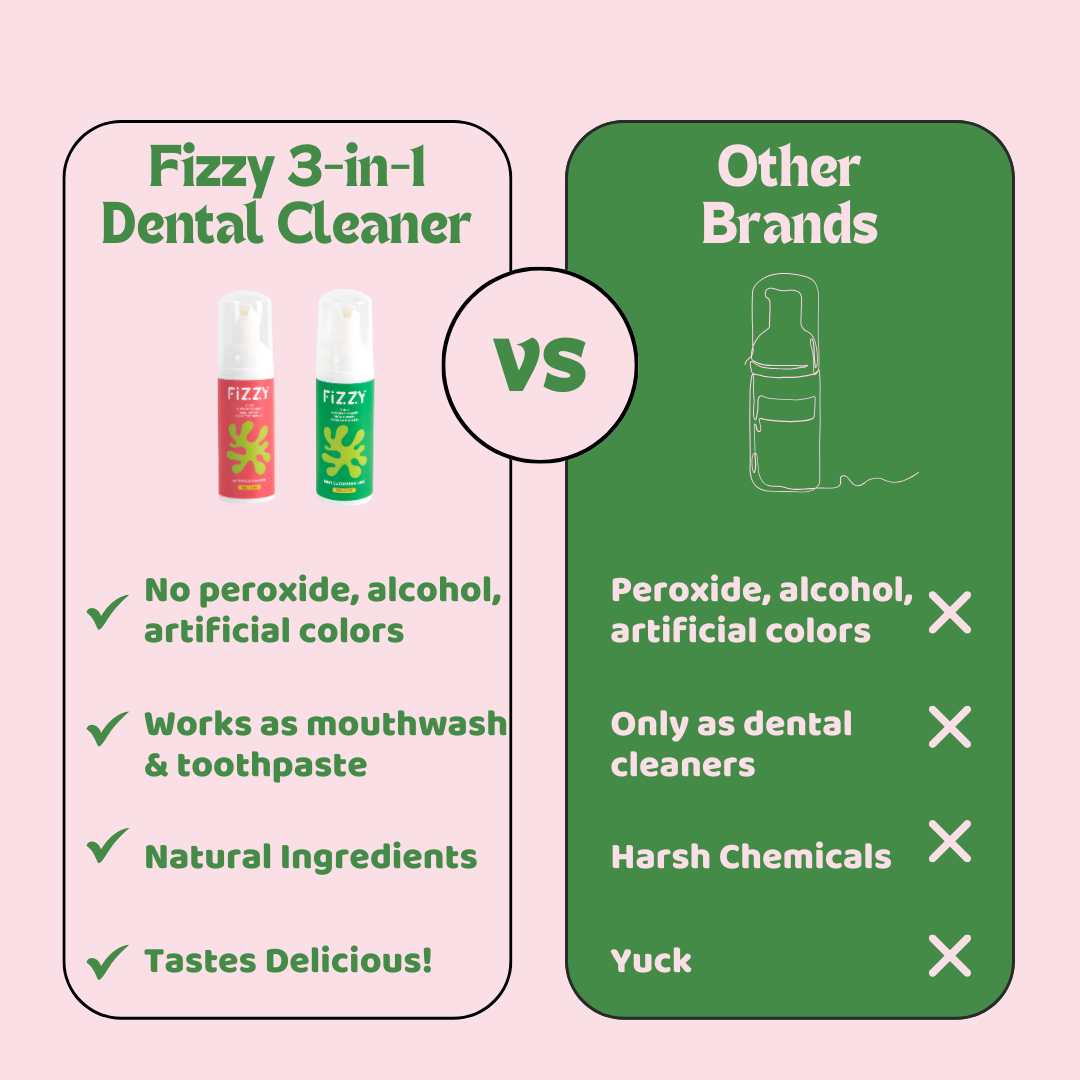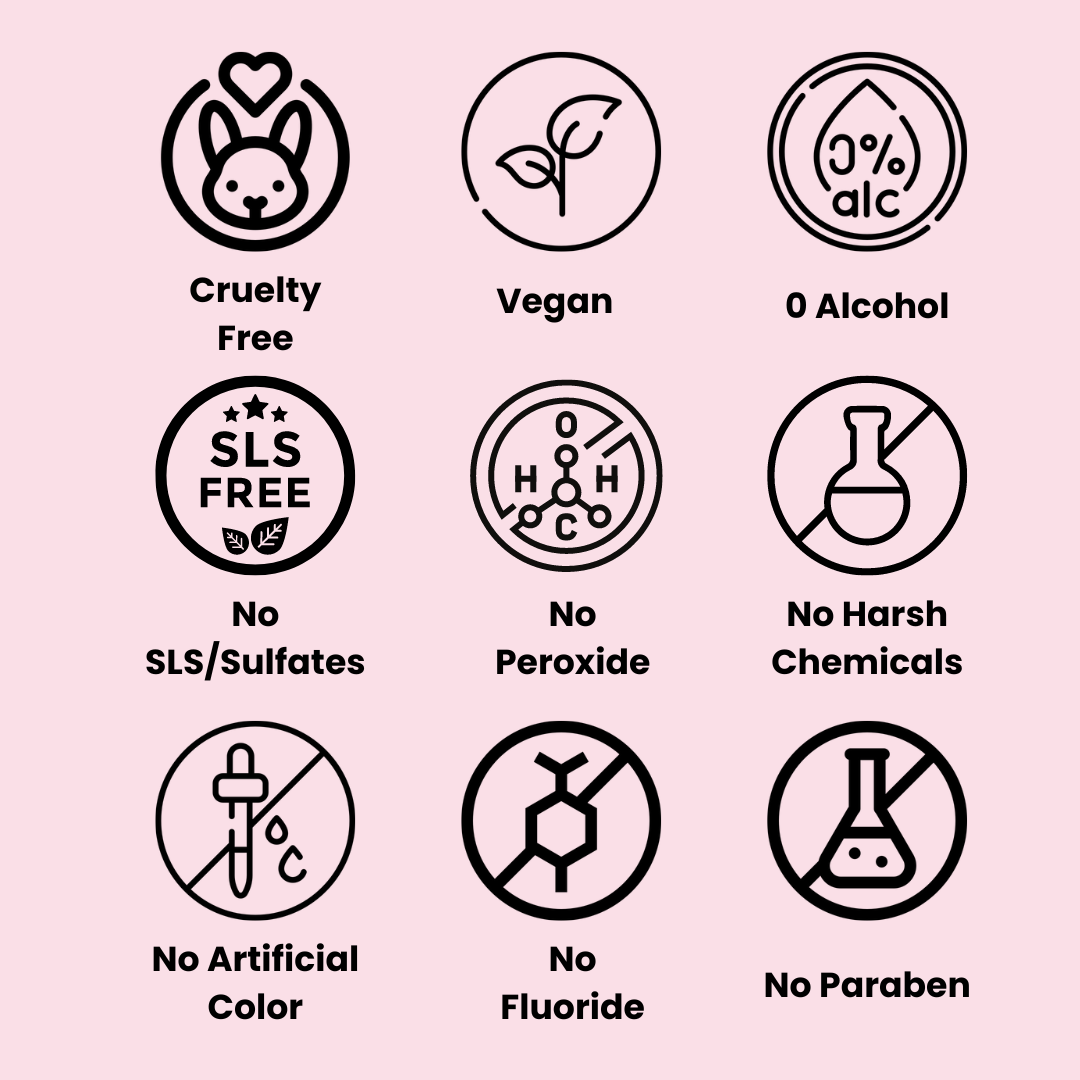
Can Clear Aligner or Retainer Cause Cavities? [2023]
Inside this Article:
Are you considering undergoing Invisalign treatment and worried about the potential risk of developing cavities? As with any orthodontic treatment, it's natural to have questions and concerns about how it may affect your oral health. Fortunately, there is a wealth of research and information available to help you make an informed decision.
Invisalign is a popular alternative to traditional metal braces that uses clear aligners to straighten teeth. The aligners are custom-made for each patient and are changed every few weeks as the teeth gradually shift into the desired position. While Invisalign offers many advantages over traditional braces, some patients may be concerned about the potential risk of developing cavities during treatment.
What are cavities and how are they caused?
Cavities, also known as dental caries, are one of the most common dental problems experienced by people of all ages. These are holes or decayed areas in the teeth caused by bacterial activity. The formation of cavities is a complex process influenced by multiple factors, including poor oral hygiene, frequent snacking, sugary or acidic foods and drinks, and a lack of fluoride in the diet or toothpaste. When food particles and bacteria are left on the teeth, they form a sticky film called plaque. Over time, the acids produced by the bacteria in the plaque can break down the enamel, which is the hard, protective outer layer of the teeth. This process is known as demineralization, where minerals such as calcium and phosphate are lost from the enamel. As the acid continues to break down the enamel, it creates tiny pits or holes, which are the early stages of cavities. If left untreated, these holes can become larger and deeper, eventually reaching the softer, more sensitive parts of the teeth, such as the dentin and pulp. When this happens, the cavity can cause pain, sensitivity, and even infection.
The development of cavities is influenced by several factors, and poor oral hygiene is one of the leading causes. When food particles and bacteria are left on the teeth, they form a sticky film called plaque. The longer the plaque stays on the teeth, the more damage it can cause. Frequent snacking, sugary or acidic foods and drinks, and a lack of fluoride in the diet or toothpaste can also contribute to the formation of cavities. Sugar and other carbohydrates are the primary source of fuel for the bacteria in the mouth that produce acid. These acids can dissolve minerals from the tooth enamel and lead to the formation of cavities. The lack of fluoride can make the teeth more susceptible to demineralization, which can also increase the risk of cavities.
What are the risks of cavities?
If left untreated, cavities can lead to more serious oral health issues. Some of the risks of cavities include:
- Pain and discomfort: As cavities progress, they can cause sensitivity, pain, and discomfort in the affected tooth.
- Infection: If a cavity is left untreated, it can lead to an infection in the tooth, which can spread to other parts of the body and cause serious health problems.
- Tooth loss: Severe cavities can cause enough damage to the tooth structure that the tooth must be extracted.
- Costly dental treatments: Treating cavities can be expensive, especially if the decay has progressed to the point where a root canal or other complex procedure is necessary.
- Difficulty eating and speaking: Cavities can make it difficult to eat and speak comfortably, which can affect quality of life.
The severity of the cavity depends on its size, location, and how long it has been present. In some cases, small cavities can be treated with fluoride or other preventive measures. However, larger cavities may require more extensive treatment, such as fillings, root canals, or even extraction.
Clinical research about retainers vs cavities
Several studies have examined the relationship between orthodontic appliances and dental caries, specifically focusing on the association between fixed lingual retainers and clear aligners. The research shows that the tight fit of aligners and the placement of permanent retainers can make it difficult to clean certain areas of the teeth, leading to the accumulation of bacteria and plaque. This, in turn, can cause the breakdown of enamel and the formation of cavities over time.
A study published in the American Journal of Orthodontics and Dentofacial Orthopedics analyzed the dental records of 300 patients who wore fixed lingual retainers. The study found that patients with poorly maintained fixed lingual retainers had a higher prevalence of dental caries than those with well-maintained retainers. The research concluded that proper oral hygiene practices, including regular dental check-ups and professional cleanings, are essential for maintaining oral health when wearing fixed lingual retainers.
In addition, "White Spot Lesions during Orthodontic Treatment: A Literature Review" (2018) published in the Journal of Orthodontics and "The Prevalence and Severity of White Spot Lesions during Orthodontic Treatment with Fixed Appliances and Invisalign: A Meta-Analysis" (2019) published in the European Journal of Orthodontics both confirm that patients who wear clear aligners are also at a higher risk of developing cavities due to the difficulty in cleaning the teeth effectively. The meta-analysis study found that patients who wore fixed appliances or clear aligners were more likely to experience white spot lesions, which are an early sign of demineralization and could eventually lead to cavities.
Why could dental aligners potentially cause cavities?
Retainers have the potential to accumulate plaque due to their design, which can lead to bacterial growth and aggregation. Plaque buildup can cause tooth decay and cavities, which can be detrimental to oral health.
Furthermore, the tight fit of clear aligners can make it challenging to clean the teeth thoroughly, which is essential for maintaining good oral hygiene. The fit of the aligner over the teeth creates a space that can trap food particles and bacteria, creating an environment favorable for bacterial growth and plaque buildup. This can result in the formation of cavities and other dental issues.
Moreover, the use of permanent retainers can make cleaning difficult, as they can obstruct access to certain areas of the teeth. This can make it challenging to remove plaque and bacteria in hard-to-reach spots, leading to the accumulation of tartar and the potential for tooth decay. When using aligners, proper oral hygiene practices are crucial to prevent plaque buildup and tooth decay.
Finally, individuals with pre-existing dental issues such as weakened enamel or gum disease may be at higher risk of developing cavities and other dental problems when using aligners or retainers. These concerns should be addressed with a dental professional to ensure the best course of action is taken to maintain oral health.
Good practices to prevent cavities for clear aligner wearers
Proper oral hygiene practices are essential when wearing orthodontic appliances like aligners and retainers. Here are some tips to help maintain good oral health while wearing aligners:
- Brush your teeth at least twice a day: Brushing your teeth twice a day for at least two minutes each time with fluoride toothpaste and a soft-bristled toothbrush can help remove plaque and bacteria from your teeth.
- Floss daily: Flossing or using interdental cleaners can help remove food particles and plaque from between your teeth and along the gum line, where your toothbrush may not reach.
- Rinse your mouth with an antiseptic mouthwash: Rinsing your mouth with an antiseptic mouthwash can help kill bacteria and freshen your breath.
- Avoid sugary or acidic foods and drinks: Foods and drinks high in sugar and acid can increase the risk of cavities and damage the aligners. It's best to stick to a healthy, balanced diet that includes plenty of fruits, vegetables, and whole grains.
- Remove your aligners before eating or drinking: Removing your aligners before eating or drinking can help prevent food particles and drinks from getting trapped between the aligners and your teeth.
- Clean your aligners regularly: Cleaning your aligners regularly with can help remove bacteria and prevent plaque buildup on your teeth and aligners.
- Store your aligners in a clean, dry place: When you're not wearing your aligners, store them in a clean, dry case to prevent bacteria and germs from growing on them.
- Visit your dentist regularly: Regular dental check-ups and cleanings can help prevent cavities and other dental issues. Your dentist can also provide guidance on maintaining good oral hygiene while wearing aligners.
Introducing Fizzy's 3-in-1 retainer cleaner, mouthwash, and foam toothpaste! Not only can it effectively clean your clear aligners, but also serve as a powerful mouthwash that eliminates bacteria, prevents plaque buildup, and promotes overall oral hygiene. Try Fizzy's today for a convenient and effective oral care solution.
Summary
Retainer or clear aligners themselves don’t necessarily cause cavities. However, when wearing aligners, there is a risk of plaque buildup and tooth decay if proper oral hygiene is not maintained. Maintaining good oral hygiene and following the guidelines provided by your dentist or orthodontist can help prevent cavities and keep your teeth healthy during Invisalign treatment.
Sources:



